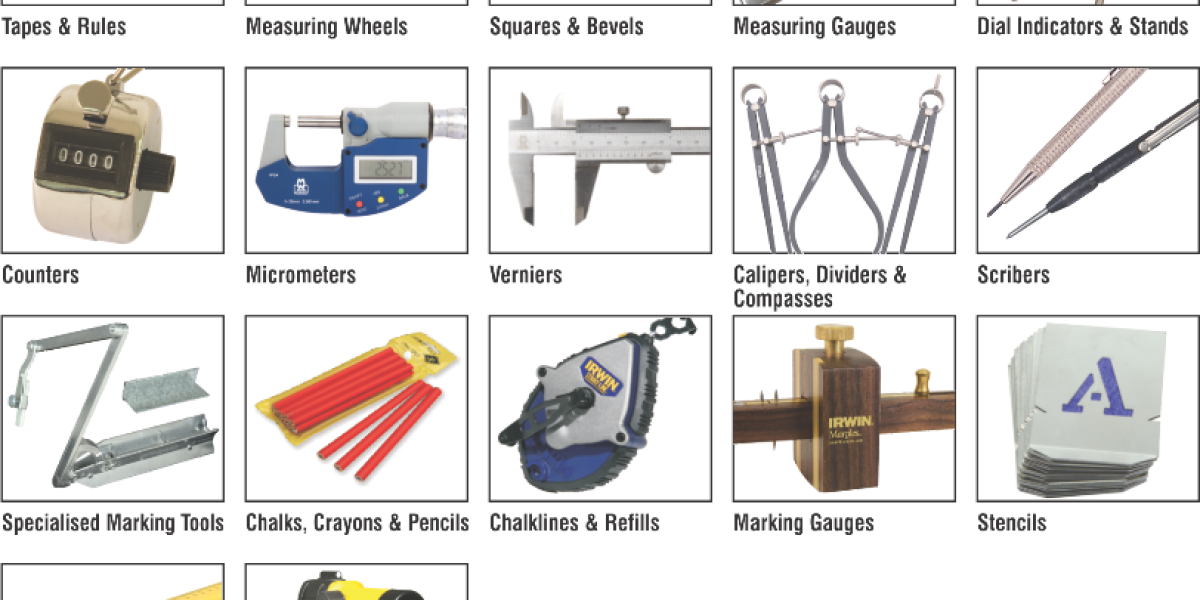Whether you’re a hobbyist, engineer, contractor, or simply a homeowner who likes to handle projects independently, having the right measuring tools can make all the difference. Precision and accuracy are key to achieving professional results, ensuring safety, and saving time and resources. Here’s a list of the top 10 essential measuring instruments you should consider owning.
1. Tape Measure
Purpose: Measuring distances, dimensions, and spaces
Why You Need It:
A tape measure is one of the most basic and essential tools for anyone working with physical dimensions. It comes in various lengths, typically ranging from 10 to 50 feet for household use. The retractable metal tape provides durability and ease of use. Whether you’re measuring a wall for a new shelf or determining how much flooring you need, a tape measure is indispensable.
Tip: Choose one with clear markings and a locking mechanism for better accuracy.
2. Digital Caliper
Purpose: Measuring internal, external, and depth dimensions with precision
Why You Need It:
For jobs that require millimeter-level accuracy—like woodworking, metalworking, or 3D printing—a digital caliper is a must-have. It offers precise measurements in both metric and imperial units and displays readings on a digital screen.
Tip: Go for stainless steel models with a zero-reset button and automatic shutoff.
3. Spirit Level (Bubble Level)
Purpose: Ensuring surfaces are level (horizontal) or plumb (vertical)
Why You Need It:
Whether you’re hanging pictures, installing cabinets, or laying bricks, a level ensures everything is straight and aligned. Traditional spirit levels contain liquid-filled vials with air bubbles to show balance.
Tip: Consider magnetic or digital levels for added convenience, especially in construction or metalworking.
4. Laser Distance Measurer
Purpose: Quickly measuring long distances with high accuracy
Why You Need It:
A laser distance measurer allows you to measure rooms, ceiling heights, or entire buildings in seconds, often with better precision than a tape measure. Many models can also calculate area and volume.
Tip: Look for models with memory storage and backlit displays for improved usability.
5. Multimeter
Purpose: Measuring voltage, current, and resistance
Why You Need It:
For electrical work, a digital multimeter is essential. It helps diagnose electrical problems in household wiring, appliances, car batteries, and more. It’s also useful for testing circuits and components in DIY electronics.
Tip: Choose a multimeter with overload protection and auto-ranging for safe, easy operation.
6. Protractor (Digital or Analog)
Purpose: Measuring and setting angles
Why You Need It:
In woodworking, metalworking, and even art, precise angles are crucial. A protractor allows you to measure and replicate angles accurately. Digital protractors enhance precision and offer easy reading.
Tip: A combination of a protractor and angle ruler can add versatility to your toolset.
7. Thermometer (Infrared or Digital)
Purpose: Measuring temperature without contact
Why You Need It:
An infrared thermometer is useful in many scenarios—checking HVAC system efficiency, cooking, mechanical diagnostics, or identifying heat leaks in your home. It allows fast, safe temperature readings from a distance.
Tip: Make sure it has a suitable temperature range and adjustable emissivity for different surfaces.
8. Stud Finder
Purpose: Locating studs behind walls
Why You Need It:
Before drilling into a wall, you need to know what’s behind it. A stud finder can locate studs, wires, and pipes, helping you avoid costly mistakes and enhance safety.
Tip: Models with deep scan and live wire detection offer better functionality.
9. Measuring Square (Speed or Combination Square)
Purpose: Marking and verifying right angles
Why You Need It:
A square helps ensure that your materials are cut or assembled accurately, especially for carpentry and framing work. A combination square also includes a built-in ruler and level, adding utility.
Tip: Look for metal construction and etched markings for long-lasting accuracy.
10. Hygrometer
Purpose: Measuring humidity levels
Why You Need It:
Controlling humidity is crucial for comfort, health, and the longevity of materials like wood and electronics. A hygrometer helps monitor indoor air quality and is essential for greenhouses, basements, and climate-sensitive storage.
Tip: Combine with a thermometer for better climate control insights.
Conclusion
Owning the right measuring instruments is an investment in precision, safety, and efficiency. These 10 tools cover a broad range of applications—from simple home improvements to intricate technical work. By equipping yourself with these essential instruments, you empower your work with confidence and clarity—regardless of your skill level.












